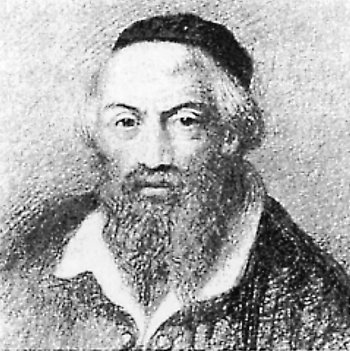The great Jewish scholar Moses Isserles promoted not only the study of religious texts but also of secular sciences. He considered Poland a gift from God that saved the followers of Judaism.
The future rabbi Moses Isserles was born in Kraków. The exact date of his birth is unknown – presumably between 1510-1520. It is known, however, that his father, Izrael Lazarus (Isserl Lasers) was considerably wealthy and was engaged in trade and banking. In 1553, he founded one of the oldest synagogues in Kazimierz (today a district of Krakow), which was named Remah after the nickname of Moses Isserles.
Authority for Jews
Isserles studied at a yeshiva in Lublin. His master was Shalom Szachna, whose daughter he married. Then, in 1547, he returned to Krakow, where the king of Poland, Sigismund the Old, offered him the position of the chief rabbi of the Jewish religious community. Five years later, Isserles became the rector of the Krakow yeshiva.
He headed the Krakow Jewish higher education institution that became enormously famous not only in Poland but also in Central Europe and Germany. Isserles himself became an authority on halakhah, or the interpretation of the Torah. His works helped Jews to organize autonomous communities. Ashkenazi Jews especially owe him in this regard as the rabbi shared the view about the cultural similarities of Jews from Central and Eastern Europe.
Renaissance man
Isserles was an extremely versatile man, studying not only the Jewish texts. The rabbi’s interests also included philosophy, history, astronomy and the cabal. Thus, he set an example for other Jews, encouraging them to study secular sciences. According to him, such knowledge, combined with religious philosophy, led to a better understanding of faith.
The rabbi was also the author of words that say a lot about his attitude towards Poland. He stated that “Had not the Lord left us this land as a refuge, the fate of Israel would have been indeed unbearable.”
He died in 1572. His grave is located in Krakow near the Remah Synagogue and is a pilgrimage destination for Jews from all over the world.





